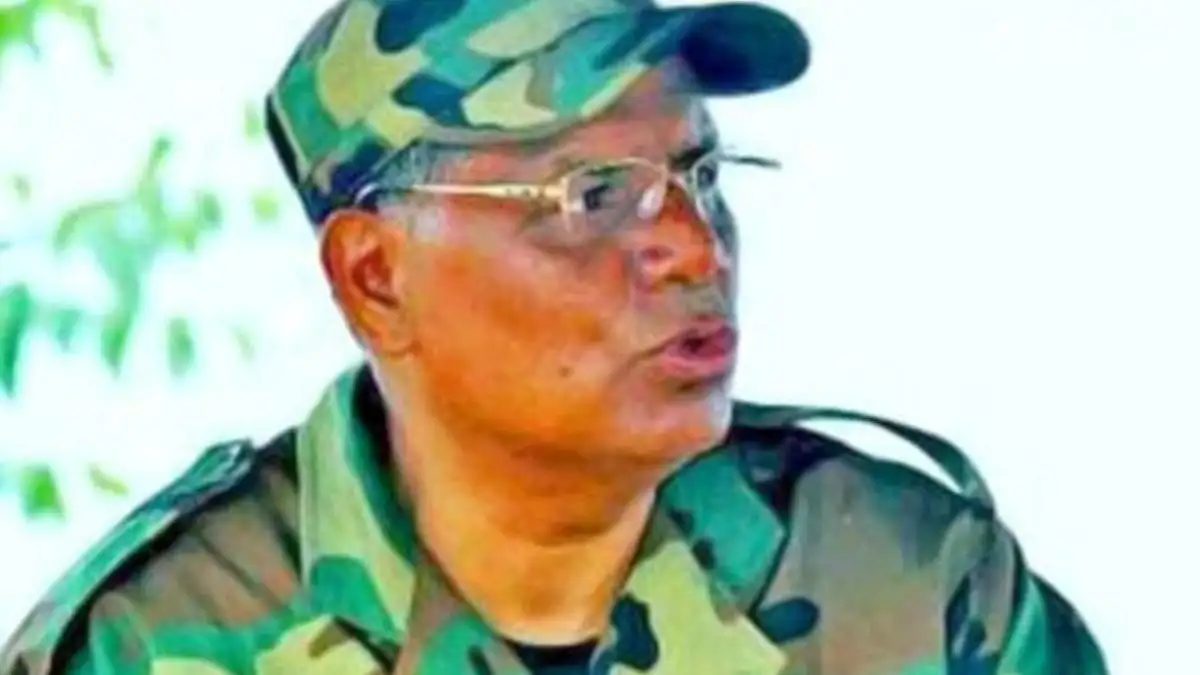
A Bangladeshi High Court on Wednesday commuted the death sentence of ULFA leader Paresh Barua to life imprisonment and acquitted a former junior minister and five others in a 2004 case of attempted smuggling of weapons to the separatist outfit in northeast India. A total of 10 truckloads of weapons were seized in April 2004 despite alleged efforts of certain “influential quarters” for its safe passage to United Liberation Front of Asom (ULFA) hideouts in northeastern India through Chattogram, which was then spelt as ‘Chittagong’.
The seized weapons included over 27,000 grenades, 150 rocket launchers, over 11 lakh ammunition, 1,100 submachine guns and 11.41 million bullets. The two-member High Court bench commuted the punishment of ULFA leader Paresh Barua, who was sentenced to death after a trial in absentia — now assumed to be living in China — and sentenced him to life imprisonment, said a government attorney at the bench. The High Court bench comprising Justice Mostafa Zaman Islam and Justice Nasrin Akhtar acquitted former state minister for home Lutfuzzaman Babar and six others, who were handed down capital punishment following the death reference hearing, he added.
The five others to escape the gallows are former director general of Forces Intelligence (DGFI) retired major general Rezzakul Haider Chowdhury, former managing director of a state-run fertilizer plant (CUFL) Mohsin Talukder, its general manager Enamul Hoque, former additional secretary of industries ministry Nurul Amin and Jamaat-e-Islami leader Motiur Rahman Nizami. The plant site was said to have been used for trans-shipment of weapons for ULFA.
Former chief of Bangladesh’s National Security Intelligence ex-brigadier general Abdur Rahim, a former DGFI director as well, was also sentenced to death but he died a normal death in prison as the appeal and death hearing process was underway. Nizami, a former minister in the past Bangladesh Nationalist Party (BNP)-Jamaat alliance government, however, was hanged several years ago on charges of crimes against humanity during Bangladesh’s 1971 Liberation War siding with the Pakistani troops while his party was opposed to the country’s independence.
Babar’s lawyer Shishir Manir earlier told the bench that his client had been falsely implicated in the case for political reasons and the prosecution could not produce any credible evidence or trustworthy witness in support of the charges brought against him.
The former junior minister was also sentenced over a 2004 grenade attack on the now deposed prime minister and the then opposition leader Sheikh Hasina and her top party leaders when 24 people were killed and hundreds wounded but another High Court bench acquitted him after death reference hearing on December 1. Earlier on January 30, 2014, a special tribunal in the northeastern port city of Chattogram handed down the death penalty to 14 people, including two former ministers of the past BNP government, two ex-army generals and a top ULFA leader in the arms haul case.
The trial or lower court verdict had come nearly a decade after the accidental seizure of 10 truck loads of smuggled-in weapons destined to the ULFA hideouts in northeastern India through Bangladesh territory.
The two politicians to get the capital punishment were Babar and Nizami, the former Jamaat ameer and then industries minister in the same cabinet, while ULFA’s fugitive military wing chief Barua was one of the convicts to be awarded the death penalty.
But the case was shelved for years during the past BNP-led four-party government with Jamaat being the key-ally while police officers who seized the weapons were allegedly exposed to professional harassment. The subsequent military-backed interim regime in 2008 ordered the re-investigation amid allegations that there was a deliberate attempt on the part of the then administration to suppress facts to weaken the case. The supplementary chargesheet said the weapons were brought for ULFA under the supervision of some DGFI and NSI officials while the consignment was unloaded at a government jetty in Chittagong to be reloaded in trucks destined for northeastern frontiers.
Officials familiar with the investigation said their extended probe found Chinese firm NORINCO to have produced the weapons but they could not identify the ship that carried the illegal consignment to Bangladesh territory.
(With inputs from agency)
ALSO READ: Ousted PM Hasina acted as ‘instructor’ in enforced disappearances: Bangladesh’s inquiry commission


